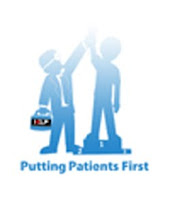Hyperactivity is a very distressing and multiple handicap which affects, in varyi9ng degrees, thousands of babies, children and adults. A child is often affected before birth, and if adequate preventative measures are not taken, serious disabilities occur which threaten the child's future development. If left untreated the condition may continue to affect the person through adulthood in some form or another, although some remission may occur at puberty.
Hyperactive babies often suffer from 'colic', need very little sleep, cry and scream for much of the time. They are restless, fidgety. They often reject mothering and affection.
Hyperactive child's attention span is very short and they are easily distracted. They may not deliberately destroy things but lack of control, poor co-ordination and general clumsiness leads to breakage of toys and household objects. The speech and thinking processes of the hyperactive child often reveals many defects. As some learning disabled children have their greatest difficulties with visual perception, so others cannot integrate what they see and hear and therefore cannot understand, even though they may have no measurable hearing loss.
Symptoms:
In infancy-
- Crying, screaming, restlessness, some need little sleep
- Colic, very difficult to feed, whether breast or bottle
- Cannot be pacified or cuddled, spurns affection
- Head banging, cot rocking, fits and tantrums
- Clumsy, impulsive, often accident prone
- Erratic disruptive behavior
- Compulsive 'touching', constant motion
- Disturbs other children, may be aggressive
- Lacks concentration and may be withdrawn
- Normal or high IQ but fails at school
- Poor appetite, poor hand and hand eye co-ordination
- Self abusive- pulling hair, picking skin and so on
- Continued problems with sleep
- I was told that I had ADHD what does that mean?
2. How can it be Helped?
Ans: There are many different tablets that can help the Chemical Messenger System, one of which is Ritalin.



No comments:
Post a Comment